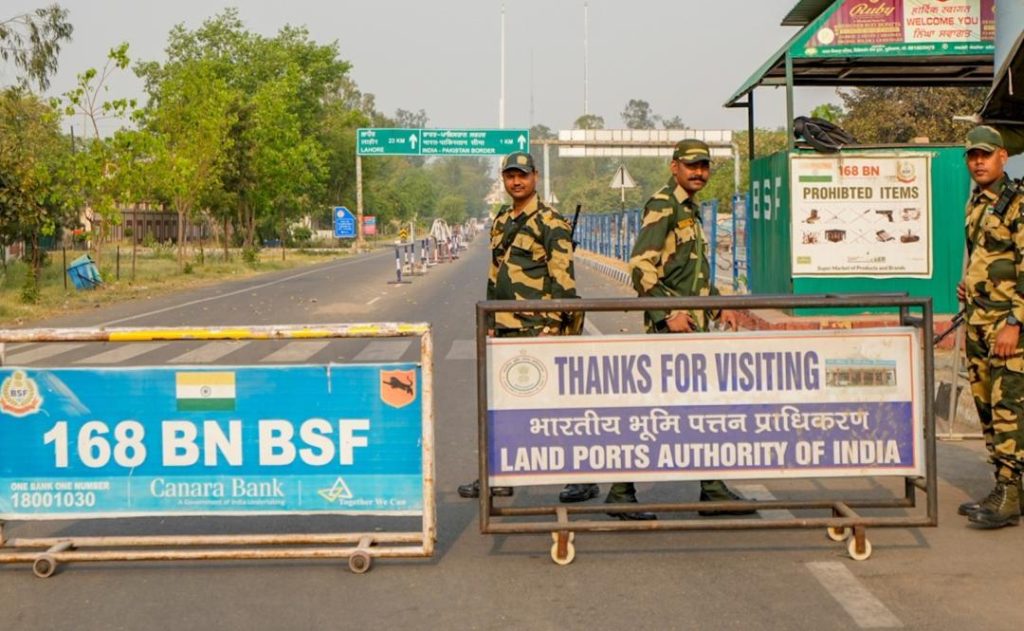
Attari-Wagah Border between India & Pakistan Completely Closed
In a significant development, the Attari-Wagah border between India and Pakistan has been completely closed, according to a report by PTI. No person from either side crossed to the other side on Thursday, marking a rare instance of bilateral inaction at the border.
The closure of the border comes in the wake of Pakistan’s decision to shut down the border and stop accepting its citizens who were deported by India. This move is seen as a retaliatory measure by Pakistan against India, following the recent terror attack in Pahalgam, which claimed the lives of 26 tourists.
The Pahalgam terror attack has sent shockwaves across the country, with both governments scrambling to respond to the crisis. In the aftermath of the attack, Indian authorities began deporting Pakistani nationals who were found to be involved in the incident. Pakistan, in response, has stopped accepting these deportees, effectively closing the border.
The closure of the Attari-Wagah border is significant, as it is one of the most heavily used international border crossing points between India and Pakistan. The border is open seven days a week, with thousands of people crossing the border every day. The closure is expected to cause significant disruptions to trade and travel between the two countries.
The Attari-Wagah border is a 4-kilometer stretch of land that separates the Indian state of Punjab from the Pakistani city of Punjab. It is one of the most heavily guarded border crossing points in the world, with soldiers from both sides stationed along the border. The border is also a popular tourist destination, with thousands of people visiting every year to witness the ceremonial lowering of the flags at sunset.
The closure of the border is a rare instance of bilateral inaction, as both countries have a long history of trade and cultural exchanges through the Attari-Wagah border. The border is also a vital trade route, with thousands of trucks and containers crossing the border every day.
The closure of the border is expected to have significant economic implications for both countries. India is one of Pakistan’s largest trading partners, and the closure of the border is expected to cause significant disruptions to trade. Pakistan is also a significant trading partner for India, and the closure of the border is expected to have a negative impact on the Indian economy.
The closure of the border is also expected to cause significant disruptions to travelers, with thousands of people stranded on either side of the border. The closure is expected to have a significant impact on the tourism industry, which is a significant contributor to the economies of both countries.
The closure of the Attari-Wagah border is a significant development in the ongoing tensions between India and Pakistan. The two countries have been locked in a bitter standoff for months, with both sides trading accusations of aggression and terrorism. The closure of the border is a sign of the growing tensions between the two countries, and the need for a peaceful resolution to the crisis.
In conclusion, the Attari-Wagah border between India and Pakistan has been completely closed, marking a rare instance of bilateral inaction. The closure is a significant development in the ongoing tensions between the two countries, and is expected to have significant economic and social implications. The need for a peaceful resolution to the crisis is more urgent than ever, as the closure of the border is a sign of the growing tensions between the two countries.
Source:






